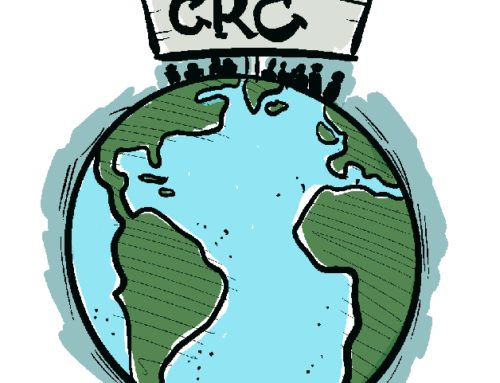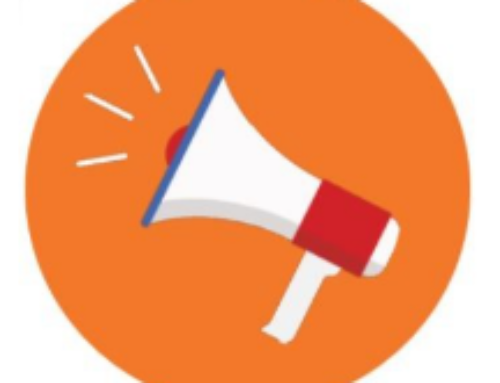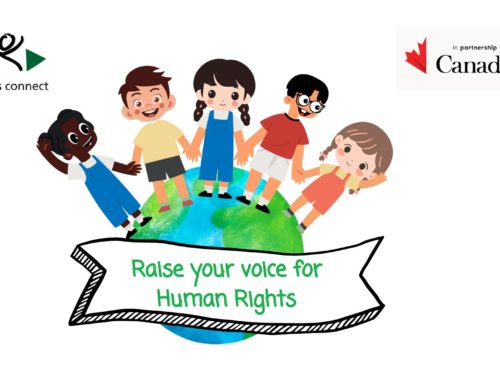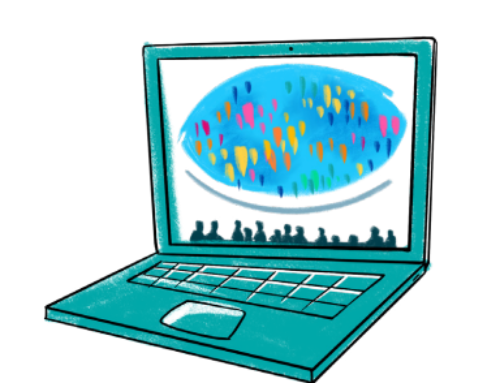For the first time, this year’s Human Rights Council (HRC) Annual Day on the Rights of the Child was marked by some ground-breaking and historic child participation, with a total of 7 children taking part in the event, as panellists, state and civil society representatives! It was also the first time that two street-connected children were able to participate at this event.
The Annual Day on the Rights of the Child, which took place on March 1st 2021, focused on “The Rights of the Child and the Sustainable Development Goals”, mirroring the theme of this year’s UN Secretary General’s report on the rights of the child mandated by the General Assembly (GA) and the theme of the child rights resolution to be adopted by the GA in the fall. This theme comes as a result of the biennalisation of the GA and HRC resolutions on the rights of the child, where further synergies are being encouraged and promoted between the two fora in relation to child rights.
Morning panel: “Securing a future for today’s children and generations to come: building back better with children’s rights upfront”
“Around the world, children and young people are demanding a real change. They are demanding societies where people and the planet come first, demanding action where previous generations have failed. It is time to hear their call and to give them a seat at the table. It is time we look to them, not only for inspiration but for leadership. Their passion and action in defending their rights and the right of us all makes me as humble as makes me proud, and most of all, it brings me a sense of responsibility” Ms. Michelle Bachelet, UN High Commissioner for Human Rights, keynote speaker.
Opening the first discussion panel, Henrietta Fore, Executive Director of UNICEF, accentuated how children’s rights have come under threat from the COVID-19 pandemic and emphasised that without putting their rights first in plans and programmes for recovery, the world cannot achieve the SDGs.
“My hope today is that world leaders take the question of poverty, inequality and climate action very seriously because it affects children most. If nothing is done, then all your efforts to ensure the protection and promotion of children’s rights will be forgotten and this shall affect the development and future of children”, said panelist Fred, a child human rights defender from Save Street Children Uganda and one of the first two street-connected children to ever address the HRC.
Ms Trisha Shetty, Chief Executive Officer of She Says, and President of the Steering Committee of the Paris Peace Forum noted that children and youth are already leading the good fight and that they are unapologetic and restless when it comes to fighting for justice, fighting to live lives of dignity, and fighting for human rights. She encouraged leaders to be half as brave as them, to speak up in solidarity and keep using their platforms to highlight their advocacy, their struggles and stand next to them when those with tested interests go after them.
Intervening from the audience, Tamara, a child human rights defender from Brazil supported by World Vision International, shared figures of violence and inequality against boys, girls, adolescents and vulnerable groups in her country, such as the LGBTQI+ community, and urged the world leaders to work together to find feasible solutions.
“In my country there are organizations educating children about democracy and active citizenship, encouraging us to participate and are helping us be heard and be taken seriously” said Bilal, as the representative of the Permanent Mission of Slovenia, making history as one of the first two children to speak on behalf of his government at the Human Rights Council.
In her closing remarks as panellist, Ms Mary Robinson, Chair of The Elders, praised Fred’s intervention and stressed that governments should listen very carefully to his asks and recommendations. She further underlined that children have really broken through on the climate issue, speaking truth to power by calling for climate justice around the world.
Afghan Khan, the UNICEF Regional Director for Europe and Central Asia closed the discussion by emphasizing that it is a collective responsibility to support children like Fred and the other child speakers to make sure that they are given the opportunity and space to speak up and most importantly, a safe space for their voices to be heard.

Afternoon panel: “The gaps and barriers affecting children: following up on commitments through the Decade of Action and delivery on the Sustainable Development Goals”.
During the afternoon panel, Dr. Najat Maalla M’jid, the Special Representative of the Secretary-General on Violence against Children, opened the discussion by recalling that the 2030 Agenda provides a crucial framework for the prevention and elimination of all forms of violence against children, as enshrined in the Convention on the Rights of the Child, by strengthening the protective shield around them and reducing their vulnerability.
“Leaders around the world should take children into account in all of the consultations and negotiations of any document that will define children’s future and to get to know children’s boys and girls from their home nations and listen and understand what problems they are facing”, said Claudia an Ecuadorian child rights activist from the Inter-American Children’s Institute
In his intervention, Mr. Benyam Dawit Mezmur, member of the Committee on the Rights of the Child, underlined the Committee’s role as an accountability mechanism to monitoring SDG progress in the framework of child rights implementation. He also emphasised that in the centre of accelerating action to achieve the SDGs should be an enhanced investment on children and this investment should be informed by the child-rights based approach, as well as accountability mechanisms.
Intervening from the audience, Reece, a 17-year-old child rights activist from South Africa, supported by Child Rights Connect, referred to the impacts of the COVID-19 pandemic on child rights. He emphasized that Governments have the opportunity to rebuild a new society after the pandemic that is truly inclusive of children and their rights and called on them to invest directly in the value of education. Reece further highlighted the need for children to be included in decision-making processes in order to ensure sustainable solutions.
Speaking from the audience, Ishika, a child human rights defender from India supported by Consortium for Street Children, and one of the first two street-connected children to ever address the HRC, urged the world leaders to “Come up with the solutions so that children can access food, healthcare and shelters from anywhere in her country. Only then it can be claimed that inequalities have been reduced in the world”.
Gerard, a child rights defender from Fiji, also made history as one of the first two children to speak on behalf of his government at the Human Rights Council. As the representative of the Permanent Mission of Fiji, he shared his beliefs that the SDGs should serve as a roadmap for improving the lives of children in all countries and that the rights of children must be protected for the successful achievement of sustainable development in any country. Both Fiji and Slovenia were the first countries to give their slots to children to speak at the Human Rights Council.
Save the Children International delivered a statement on behalf of the Child Rights Connect Task Force on children’s rights and SDGs, calling on UN member states to adopt a child rights approach to the SDGs through protecting, empowering and investing in children.
As the event concluded, Mr. Bruce Adamson, Children and Young People’s Commissioner Scotland echoed what Claudia, Reece, Ishika and Gerard had said and emphasised that a rights-based approach ensures access to services, improves economic systems and ensures that all underlying needs are met. He also noted that children must be at the heart of decision-making as the world looks to building back better from the COVID-19 pandemic and to achieving the SDGs in a way that realises children’s human rights.
Throughout the Annual Day, many States reiterated the centrality of child rights in SDGs implementation and the EU called on the UN system to adopt a system-wide approach to ensuring the centrality of children’s rights in all of its action! You can read the EU’s statement here.
For detailed information, you can read Fred, Tamara, Bilal, Claudia, Reece, Ishika and Gerard’s statements; consult the notes from the morning panel and afternoon panel and watch their powerful messages on the UN Live Webcast of the morning session and afternoon session.










Leave A Comment